Humans spend about a third of their life sleeping. Yet, our understanding of the cognitive, emotional and neurodevelopmental functions of this essential behavior and how these may be disrupted in clinical populations is still very limited. Sleep disturbances are observed in most major psychiatric disorders but little is known about their exact nature. Our focus is on defining the physiological features of sleep disturbances in psychiatric disorders, investigating their relations with symptoms and cognitive deficits, and examining the neural circuitry involved in these sleep deficits. The ultimate goal of our research is to identify sleep-related biomarkers that play a causal role in psychiatric disorders.
Our lab exploits multimodal neuroimaging and electrophysiology techniques to investigate these questions. We study adults as well as adolescents and children diagnosed with or at heightened risk for various psychopathologies including psychotic disorders, anxiety and depression.
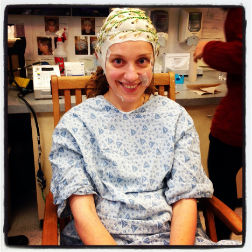
Electrophysiology
We use polysomnography (PSG) to monitor nocturnal sleep and mid-day naps. We are interested in examining macro features of sleep such as sleep architecture and quality as well as micro features that involve topographical characterization of sleep oscillations (such as slow waves and sleep spindles) and their spectral properties.
We use Event-Related Potential (ERP) techniques to examine the wake functions of neural circuitry involved sleep-related deficits in patients.
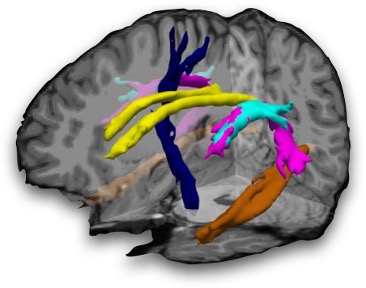
Magnetic Resonance Imaging (MRI)
Structural and functional MRI techniques allow us to quantify structural integrity, task-dependent brain activation, and resting-state functional connectivity. The Magnetic Resonance Research Facility at Iowa Institute for Biomedical Imaging houses research dedicated 3T and 7T GE scanners that we utilize in our research.
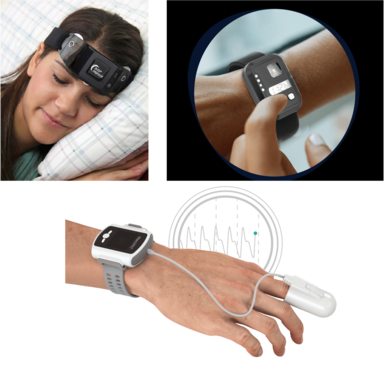
Wearable devices
Our lab uses a variety of wearable devices to track sleep, activity, and daily physiology in people across the lifespan, including adolescents, older adults, and individuals with and without psychiatric conditions. These tools help us understand how real-world sleep and daily behaviors relate to mental health, with a particular focus on factors that contribute to psychotic disorders.
Some of the devices we use include:
- Actigraphy
- Sleep Profilers (wireless EEG headband)
- WatchPAT (HSAT)
- activPAL (activity monitors)
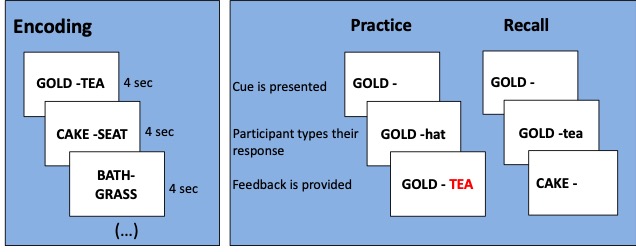
Behavior
We devise behavioral tasks to quantify sleep-dependent memory consolidation and emotional processing in clinical and healthy populations.
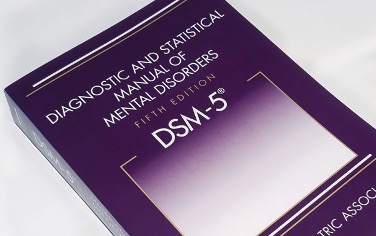
Clinical Characterization
We use clinical diagnostic interviews, symptom rating scales, neuropsychological tests as well as several self-report measures characterize clinical and at-risk populations.